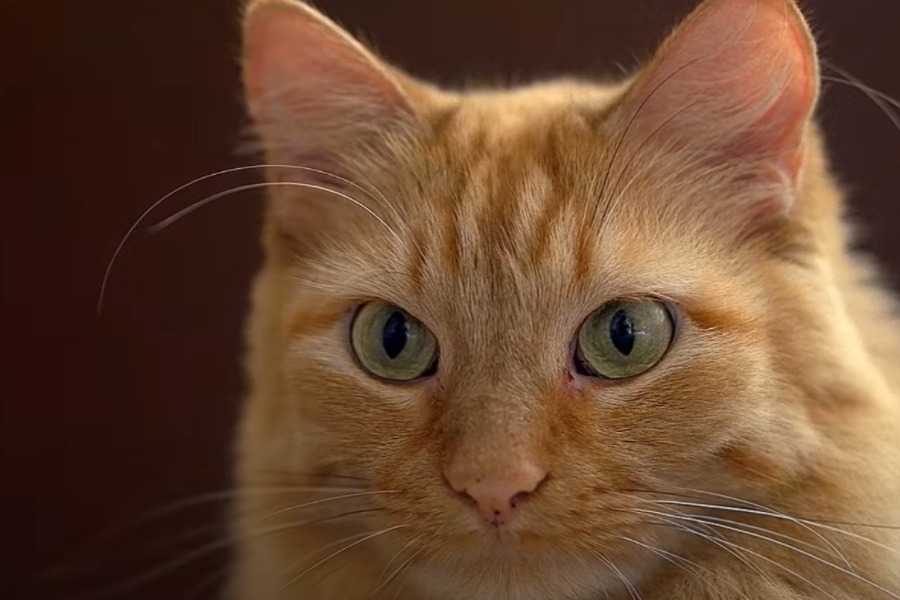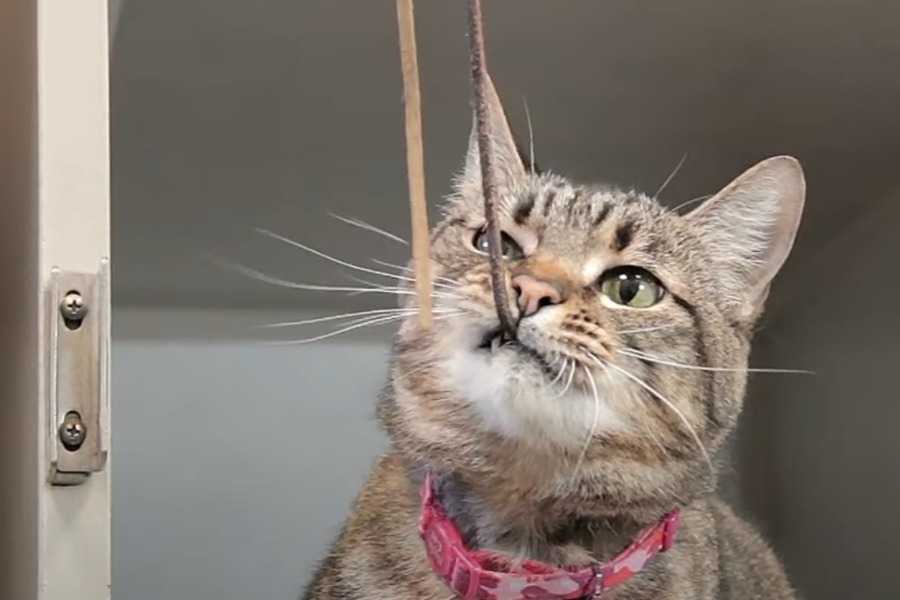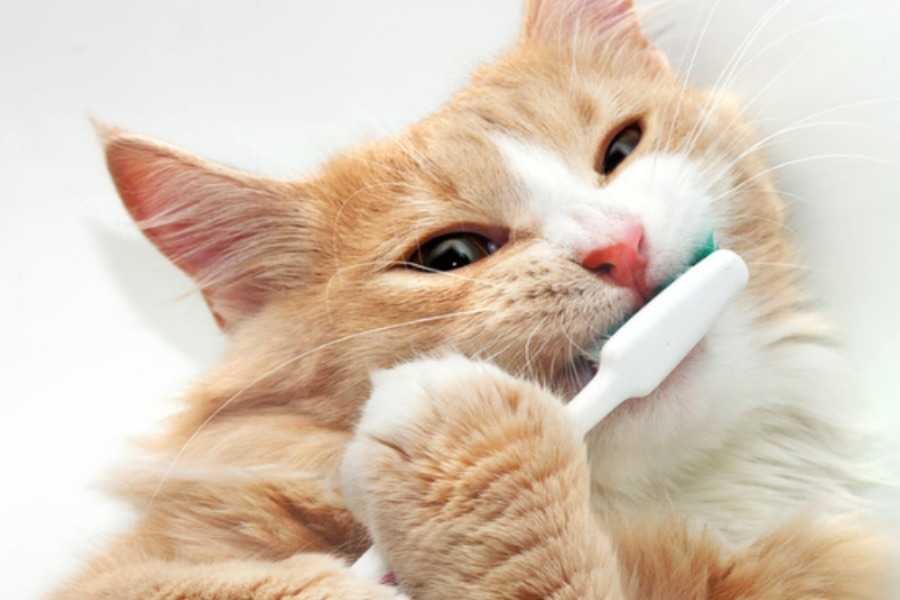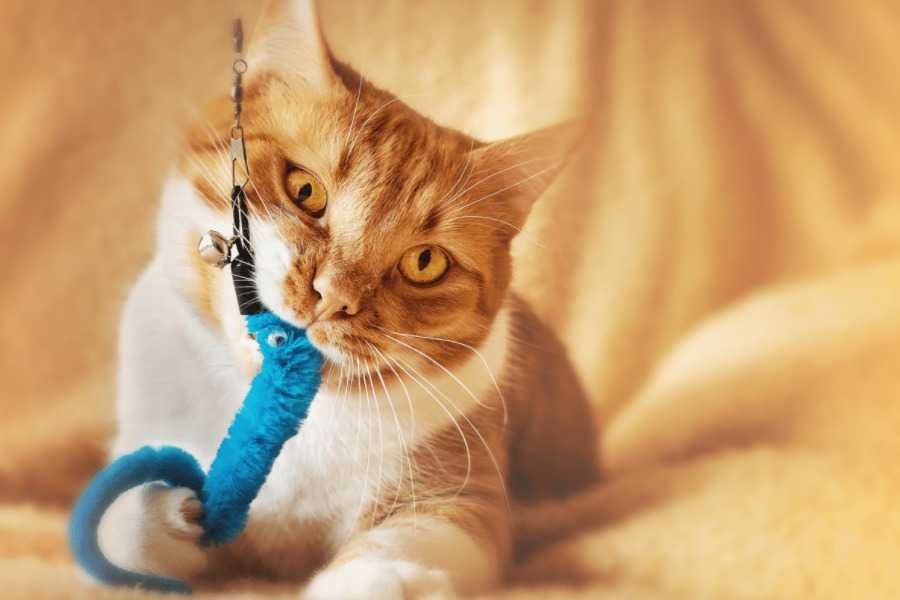Why My Cat Has Bad Breath? Causes and Remedies

Why My Cat Has Bad Breath? Bad breath, or halitosis, is a common issue in cats that can be a sign of various health problems.
While it’s easy to attribute the smell of fishy breath to diet, diet isn’t the only explanation. Excessive salivation and foreign bodies within the mouth can promote bad breath.
In this article, we’ll explore the causes of bad breath in cats and provide some home remedies to help keep your feline friend’s breath fresh.
Why Does Your Cat Have Bad Breath?

There are several reasons why your cat might have bad breath, ranging from diet and oral hygiene to more serious health conditions. Let’s take a closer look at some of these causes.
Periodontal Disease
Periodontal disease is a common cause of bad breath in cats. This condition occurs when bacteria build up on your cat’s teeth, leading to plaque and tartar. The bacteria release smelly compounds as they break down leftover food particles, causing bad breath.
Not only does this cause bad breath, but mouth bacteria can travel via the blood to various organs where they can cause infections throughout the body, often resulting in heart and kidney disease.
Poor Diet

A poor diet can also lead to bad breath in cats. High-smelling or foul-smelling foods such as fish can lead to chronic bad breath.
To prevent this, ensure your cat is receiving proper nutrition and avoid foods that are too intense in the odor department.
Gingivitis and Stomatitis
Gingivitis and stomatitis are diseases of the mouth that can cause bad breath in cats. Gingivitis involves the inflammation of the gums, whereas stomatitis causes the mucous linings of the mouth to become inflamed. These conditions can be caused by allergens, viruses, and bacteria, in addition to periodontal disease.
Metabolic Disease
Metabolic diseases such as kidney disease can lead to bad breath in cats. As kidney function decreases, waste products such as urea and ammonia build up in the cat’s blood, causing the cat’s breath to smell like urine or ammonia.
Diabetes Mellitus

Diabetes mellitus is a disease of the pancreas that can cause your cat’s breath to smell rather fruity due to the buildup of ketones in the blood.
If you notice a fruity odor in your cat’s breath, along with symptoms such as frequent urination, excessive thirst, unexpected weight loss, and an increased appetite, it’s important to seek veterinary care as soon as possible.
Oral Cancer
Oral cancer can develop in areas of any soft tissue such as the tongue, gums, tonsils, cheeks, and palate. This can promote a fishy breath smell and potentially cause eating difficulties.
Foreign Bodies in the Mouth

Foreign bodies in the mouth, such as ribbons, yarn, rubber bands, and bones, can cause bad breath in cats. If your cat has a habit of chewing on non-food items, it’s important to keep these items out of reach to prevent oral injuries and bad breath.
Neurological Disease
Neurological diseases can cause irregular movements of the tongue, leading to excessive salivation and bad breath. The inability to properly control the tongue can result in the collection of food and debris in the mouth, leading to bad breath.
Abscesses, Tumors, and Ulcers
Abscesses in the roots of teeth, mouth structures, and the nasal cavity, as well as areas behind the eyes, can promote bad breath. The same is true if a tumor develops in any of these locations. Similarly, the formation of ulcers caused by trauma, infection, allergies, and metabolic diseases can promote an ammonia-like odor, resulting in foul-smelling breath.
Home Remedies for Your Cat’s Bad Breath

If your cat’s bad breath is the result of increased plaque and tartar buildup, there are ways to get rid of the foul smell and improve your pet’s dental health and overall hygiene. Here are some home remedies you can try:
Brush Your Cat’s Teeth Regularly
Brushing your cat’s teeth can help prevent tartar and plaque buildup. Start by applying a cat-safe toothpaste to your finger and slowly start brushing. This will take a lot of trust and patience as most felines don’t like things touching their mouth and teeth. Always make sure to get both the front and back of the teeth.
Use Water Additives and Cat Teeth Gels
Water additives and cat teeth gels can help freshen your cat’s breath. These products are designed to reduce bacteria in your cat’s mouth and promote better oral health.
Give Your Cat Chew Toys

Chew toys can help prevent bacteria from building up on your cat’s teeth. The constant chewing and gnawing will help stop bacteria from building up on the teeth. Many chew toys come with breath-freshening options as well to make things easier for owners.
Feed Your Cat a Healthy Diet
A healthy diet can go a long way in preventing bad breath in cats. Avoid foods that are a bit too intense in the odor department and make sure your cat is receiving proper nutrition. Foods that are easily digestible will promote better breath.
Take Your Cat to the Vet Regularly
Regular vet checkups can help catch any potential oral health issues early. Your vet should be able to alert you about any upsetting looking ailments involving the mouth. The best way to prevent bad breath in cats is to brush their teeth periodically. It does not need to be done every day, but once or twice a week is perfect.
Wrapping Up

As you can see, bad breath in cats is anything but a frivolous and smelly inconvenience. While bad breath in people can be related to non-serious causes such as eating garlicky food, bad breath in cats is more often a long-standing and serious condition.
Luckily, there is often a solution. By understanding the causes of your cat’s bad breath and taking steps to improve their oral hygiene, you can help keep your feline friend’s breath fresh and their mouth healthy.
For more information on cat health and how to care for your feline friend, check out our other articles on PawsAdviser, such as why my cat has watery eyes and do I need to visit a vet and 21 warning signs your cat is crying for help.
Tags
Share
Related Posts
Quick Links

